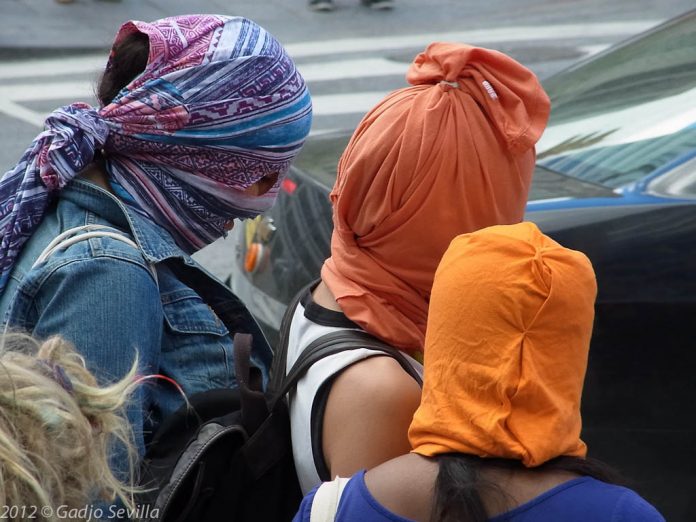Russia violated five articles of the human rights convention in its arrest and conviction of Pussy Riot members in 2012, according to the European Court of of Human Rights.
The court ruled that Russia had committed “multiple violations” of the European Convention during the three band members’ arrests and sentencing. Russia arrested Maria Alyokhina, Nadezhda Tolokonnikova and Yekaterina Samutsevich in February 2012 after they performed their song Punk Prayer – Virgin Mary, Drive Putin Away in Moscow’s Christ the Saviour Cathedral.
During their conviction, the judge said the three had committed “hooliganism” and showed “a complete lack of respect” for Orthodox believers.
As reported by the BBC, the court highlighted the band’s “overcrowded conditions” when being transported to and from court, and the “humiliation” of their exposure in a glass dock during the trial as a breach of Article 3 of the convention.
The court also said the Russian court violated Article 10 (freedom of expression) by banning access to the group’s videos online and for condemning the group’s conduct and clothing, rather than examining the content of their protest song, during the trial.
During their conviction, the judge said the three had committed “hooliganism” and showed “a complete lack of respect” for Orthodox believers.
In a separate ruling, the court also heavily criticised the investigation into journalist Anna Politkovskaya’s murder. She was shot dead in a lift in her block of flats in 2006. Five men were found guilty of her murder in 2014, although it is still not known who commissioned the assassination.
The investigative reporter was a vocal critic of Russia’s war in Chechnya, and of Russian President Vladimir Putin.
The court said Russia had failed to “take adequate investigatory steps” to find who commissioned the murder, violating Article 2 of the convention.

